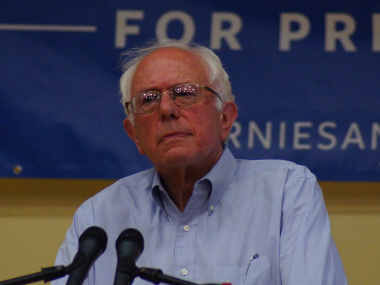Bernie Sanders’ campaign for the democratic nomination has received a degree of renewed vigor after his surprising win over Hillary Clinton in Michigan. Senator Sanders has continued to spread a message that focuses heavily on economic inequality and other bread-and-butter domestic democratic issues. However, what has not been a central building block of his campaign is what he would seek to accomplish on the world stage or how he would handle the problems of our time if elected president.
His relative silence on foreign issues feeds into criticism that although Senator Sanders can give a liberal vision for the nation, he lacks a record of effective implementation or practical problem solving to do anything more. This calls into question Sanders’ preparedness to assume the Oval Office or lead the world’s most expansive and consequential military in an era of global instability.
How would Sanders address Beijing’s aggressive attempts at territorial expansion in the South China Sea? His opposition to the Trans-Pacific Partnership (TPP) trade agreement limits the amount of power in his diplomatic toolkit, potentially increasing the likelihood of a counterattack to quell the expansion. What are the practical steps to assembling an international coalition, especially one that incorporates Russia, in dealing with events in Syria and combatting the Islamic State? What assurances would Sanders give Turkey that a Western embrace of Putin’s Russia would not jeopardize Turkish interests in the region? Could he reconcile the conflicting regional aims of Ankara and Moscow into a functional alliance with sufficient local influence?
Sanders’ substantial silence on international affairs has not been helped after ambivalent debate responses regarding the origin of his world view or revelations that his foreign policy advisors have rarely met with him at all. This lack of demonstrated ability or even demonstrated interest beyond his liberal platitudes ought to cause voters across the nation to take pause and consider the Vermont senator’s readiness to lead on the international stage. A lack of a comprehensive foreign policy strategy and the absence of a steady hand in the middle of an era of global uncertainty and rising tensions is precisely the opposite of what the United States needs to address the challenges of the present and the near-future.
What is needed is an understanding of the level of interconnectivity in which the United States operates under in the post-war era, the mantle of defense leadership it must carry in light of the substantial power-projection gap among allied nations and the requisite experience to handle the crises the next administration will almost assuredly face. Unfortunately, Bernie Sanders does not fit the bill.





